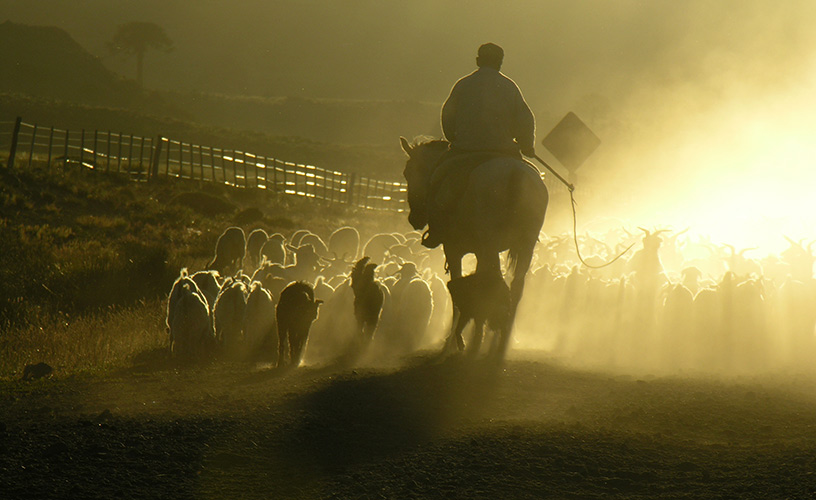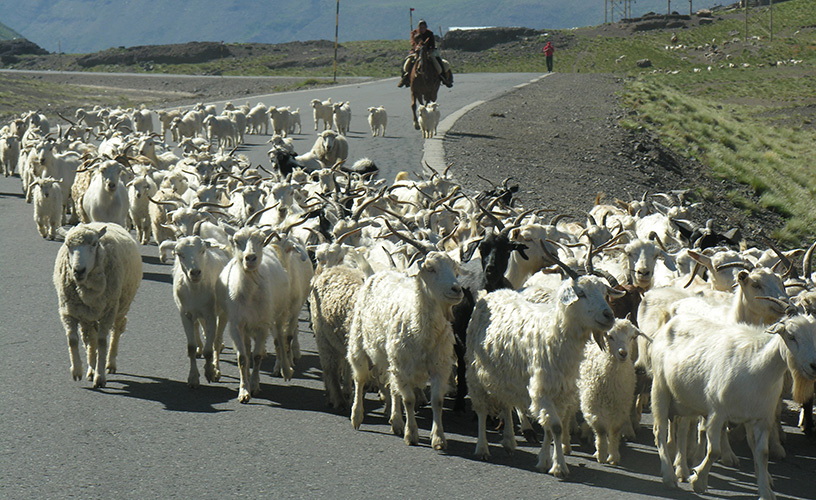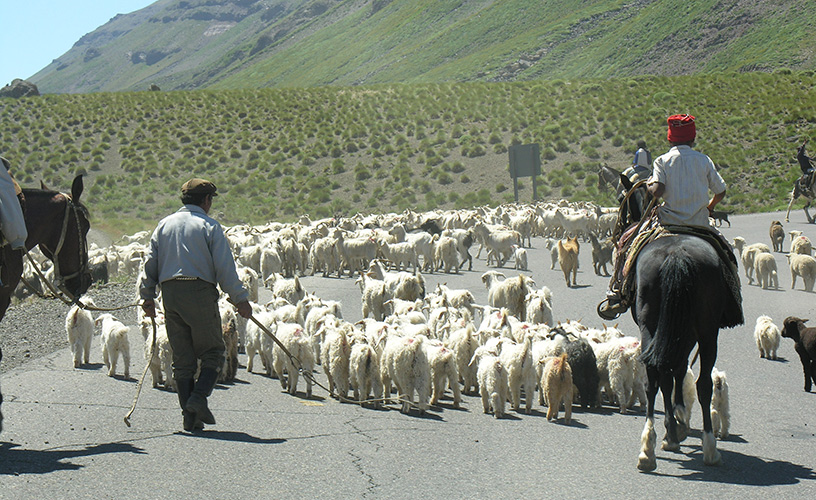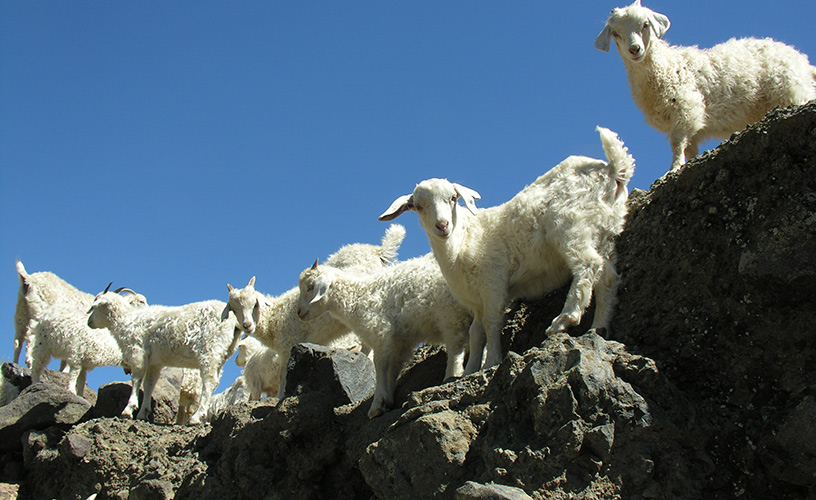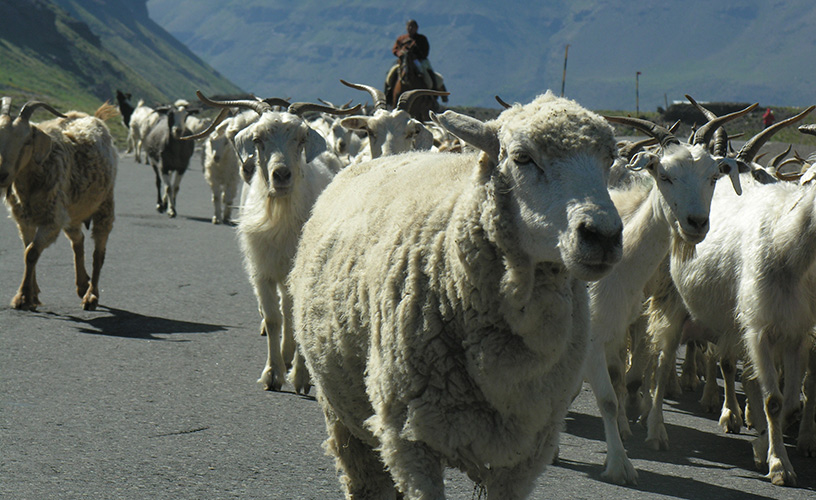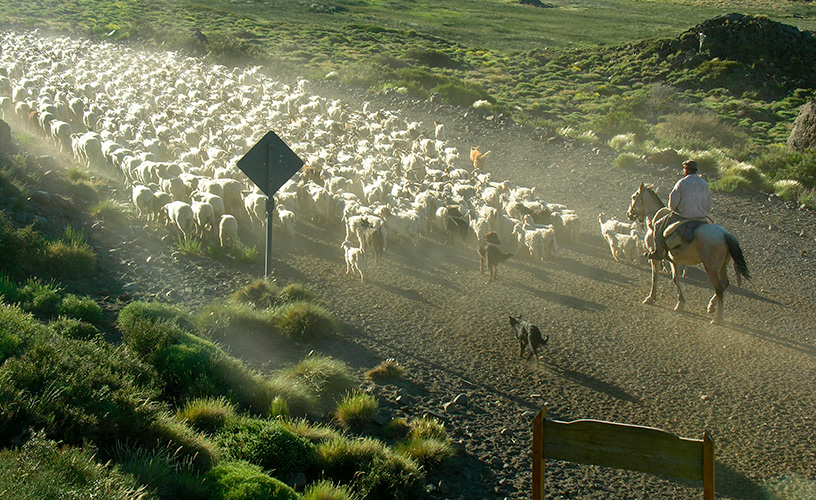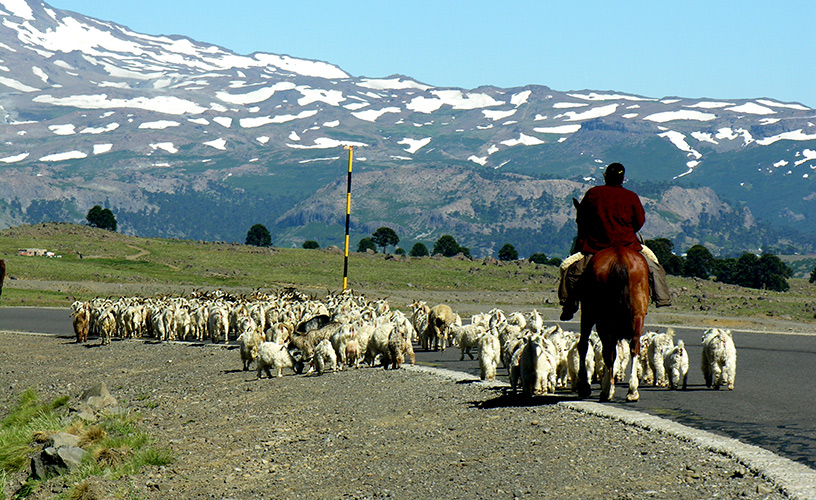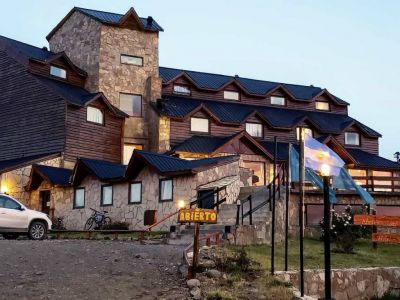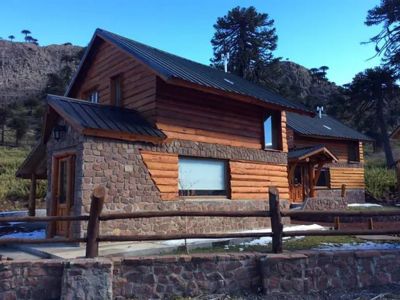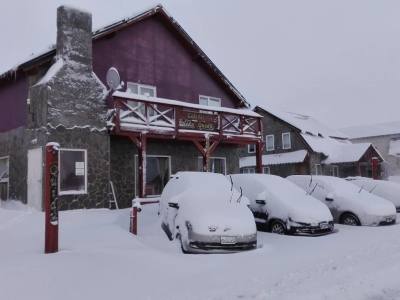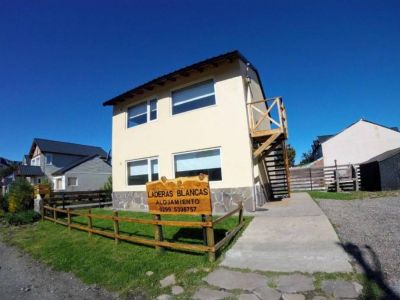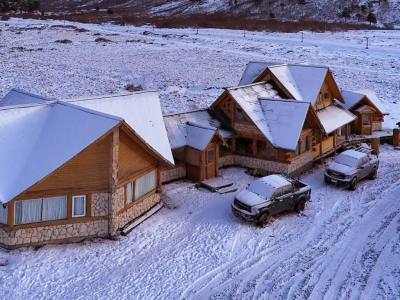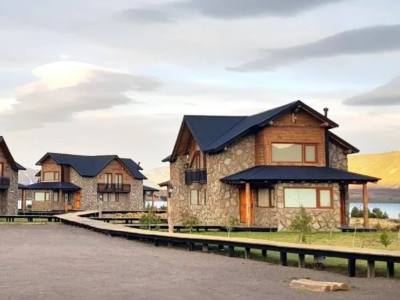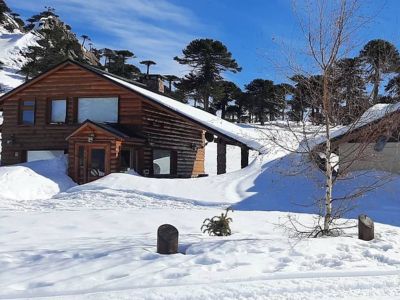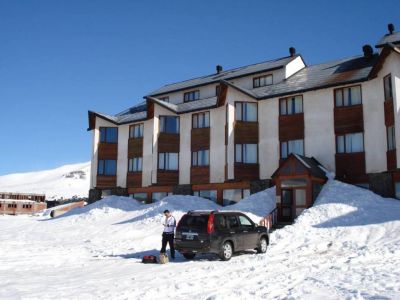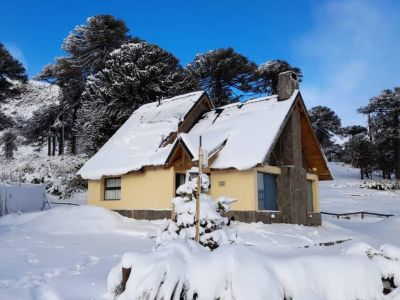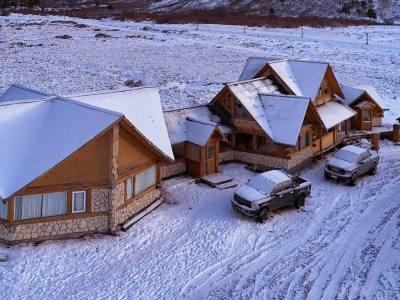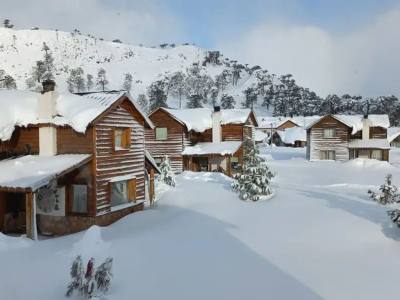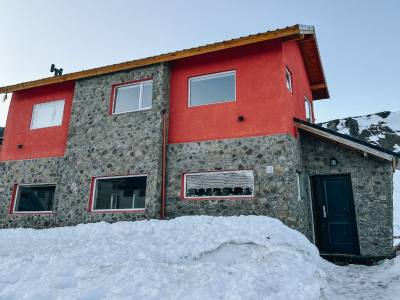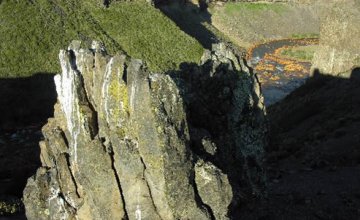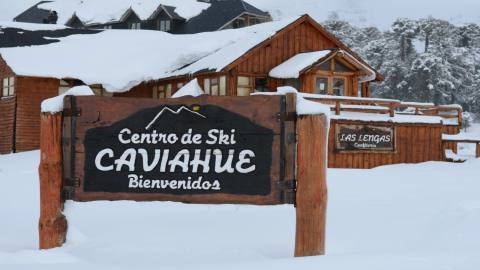Transhumance is part of the local tradition and is considered a safe way to shelter animals during the harsh winter.
There is much to learn about the native peoples about the interpretation of natural cycles. At Caviahue, the Mapuches have comprehended the teachings of their elders and they experience life according to the modifications the solar system causes on the Earth and human beings. It is by using that "decoding" process that they face diverse weather conditions, both favorable and unfavorable.
Harsh Winters
We arrived in Caviahue in the summertime. After having passed through Zapala, we took a winding road that runs along a valley which is completely covered with snow during the winter. The snow markers to both sides of the route make it possible to measure up to 4 meters of accumulated snow.
The native community called Millaín Currical has been at Cajón Chico -the access to the district- for years, and they are highly familiar with the harshness of this area. They have practiced transhumance for generations and this has enabled them to move their families and goats to milder zones. Every year, when the temperature begins to decrease in March and April, the communities slowly move to the winter lands. After traveling long kilometers, they reach a spot named Huncal.
A Great Move
The second event during the year takes place in the spring, when these people move their goats and other animals back to the summer lands and settle down on the Cajón Chico, Cajón Negro and Chinchiví Valleys once again.
We were forced to stop the car in order to let a goat herd whose number was impossible to count cross the road. We were moved by the neatness, the unhurried pace and the effort made by the riders and their dogs in order to lead the goat cattle towards the good pastures, resulting from the new sprouts in the land. Likewise, men, women and children reopen their houses for the best months in the year within a privileged area in the Andean foothills in Neuquén.
The Mapuches do not consider this an isolated fact. This is part of their philosophy. They have lived in these lands for centuries and, even though they possess no deed, they are experts on what mother nature offers and what she refuses to give us. One example is seen in the Copahue hot springs: these were not discovered by white men but it was the native peoples who have used them from time immemorial to heal disease.
Maybe it is time to understand a little bit more than life stories and learn more about great natural phenomena. Their culture is part of the idiosyncrasy of Caviahue/Copahue and it is a good idea to take part in local traditions, even if we do it as tourists.
Mónica Pons
Pablo Etchevers
Cell phone: +54 11-31887603
